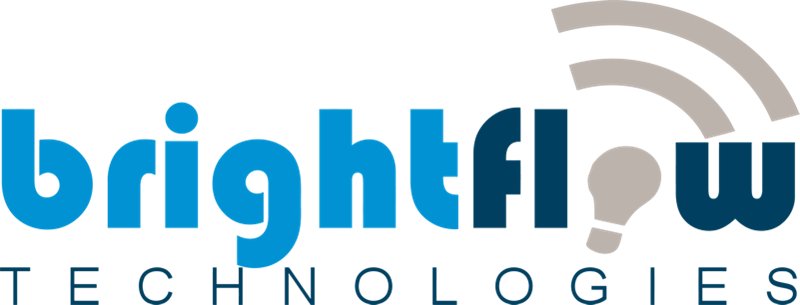For businesses in Charlotte, IT security and cybersecurity are too important to be an afterthought. With a growing number of businesses headquartered here, the digital risk profile has never been higher. A cyberattack can be devastating, with extended downtime that leads to lost revenue.
For many of these Charlotte businesses, hiring a full-time, in-house cybersecurity team is not financially feasible. This is where a Managed Service Provider (MSP) comes in. An experienced MSP like BrightFlow serves as that trusted team you need with the expertise to protect your business around the clock.
Any MSP worth their salt uses a comprehensive suite of best-in-class cybersecurity tools to execute a multi-layered approach for preventing attacks and protecting your business. BrightFlow offers BrightDefense, a comprehensive proprietary package that delivers a “secret sauce” of digital tools to accomplish the job.
This article covers some of the best tools and strategies to help protect small businesses.
1. Endpoint Detection and Response (EDR)
Your network is only as strong as its weakest point. For many businesses, that’s often an individual device (endpoint) like a laptop, smartphone or server. Because people operate these tools, and people are susceptible to human error, these devices are all potential entry points for malicious actors to access your network.
EDR solutions go beyond traditional antivirus software. They protect your business through:
- Continuous monitoring of endpoints (laptops, desktops, mobile devices) for malicious activity
- Detect threats that may have snuck past other defenses
- Provide automated or assisted response capabilities to contain and eliminate the threat.
EDR is critical because endpoints are typically the first way attackers will try to get into your network. A modern EDR system and Next-Generation Antivirus (NGAV) can use behavioral analysis (does an employee use multi-factor authentication to login?) and machine learning to identify even the new, “zero-day” threats that a signature-based antivirus would miss. It gives a business a much clearer picture of what is happening on its network and provides a rapid response to mitigate a breach before it can escalate.
Some other tools to ensure endpoint protection include:
- Managed Firewalls: A firewall is a critical first line of defense. A managed firewall service ensures your firewall is always configured correctly and updated to block unauthorized access to your network.
- Next-Generation Firewall (NGFW): An NGFW is a network security tool that controls traffic at the perimeter of the network. It’s an upgraded version of a traditional firewall that inspects data at the application layer to filter traffic, identify and stop malicious traffic patterns and signatures and integrate with other security systems to share threat intelligence.
- Secure Remote Access (VPNs): With many Charlotte businesses operating with remote or hybrid work models, a secure VPN is crucial for encrypting data and protecting network access for employees working outside the office.
2. Network Security
The first line of defense is your network perimeter. Protecting it from external threats is critical to keeping your internal systems secure. Network security tools create a digital barrier that controls and filters traffic entering and leaving your network.
This is a foundational element of any cybersecurity strategy. The goal is to stop threats before they even reach your internal systems and endpoints. This is especially important for businesses that have remote employees or multiple office locations.
- Next-Generation Firewall (NGFW): An NGFW is a network security tool that controls traffic at the perimeter of the network. It’s an upgraded version of a traditional firewall that inspects data at the application layer to filter traffic, identify and stop malicious traffic patterns and integrate with other security systems to share threat intelligence.
- Managed Firewalls: A firewall is a critical first line of defense. A managed firewall service ensures your firewall is always configured correctly and updated to block unauthorized access to your network, without the burden of day-to-day management.
- Secure Remote Access (VPNs): With many businesses operating with remote or hybrid work models, a secure VPN is crucial for encrypting data and protecting network access for employees working outside the office.
3. Security Awareness Training
Ah, people. Human error remains one of the leading causes of data breaches. Even the most sophisticated technology is useless if your employee falls for a simple phishing scam. Security awareness training helps your employees go from a potential weakness into a strong line of defense. When an employee knows how to recognize and report threats, the risk of a breach due to human error drops.
Being proactive and getting buy-in from your team (I’m doing my part) helps build a strong security culture within your organization.
- Security Awareness Training Platforms: Engaging, easy-to-understand training modules teach employees how to spot common cyber threats like phishing, social engineering and malware.
- Phishing Simulation Tools: These platforms allow you to send fake phishing emails to employees to test their awareness. If an employee clicks the link, they receive immediate, targeted training. This is a highly effective way to measure and improve security readiness.
4. Data Backup and Disaster Recovery
In the event of a successful cyberattack (especially a ransomware attack) having a reliable data backup is your most vital line of defense. It’s the ultimate safety net. While the best prevention is key, a breach is always a possibility.
These solutions ensure that even if your data is compromised, encrypted or destroyed, you can quickly restore your critical business information and get back to work with minimal disruption.
- Data Backup and Disaster Recovery Solutions: Offsite or cloud-based backup solutions can automatically save copies of your critical business data to a secure, remote location. This guarantees your data is safe even if your local network is compromised, allowing you to restore operations quickly after a security incident.
How BrightDefense Helps Protect Charlotte IT Security For Your Business
Choosing the right cybersecurity tools and cybersecurity management in Charlotte means finding a provider who can offer a comprehensive, tailored solution that fits your specific needs and budget.
BrightDefense not only covers the basics, but goes above and beyond providing all the cybersecurity tools in one package. It includes:
- Network security monitoring
- Network access control (network traffic analyzer)
- Cloud security
- Website monitoring
- Application security
- Web filtering
- Anti-virus & malware updates
- Application security patches
- Information security
- Email security
- Spam filter
- Cloud backup and archiving
- Email tenant monitoring
- Operational security
- EDR (Endpoint Detection and Response)
- Ransomware protection
- Office 365 security
- Log security monitoring
- Disaster recovery
- End-user education
With locations in both Greenville and Charlotte, as your business grows, implementing tools like BrightDefense ensures comprehensive, end-to-end protection. Our crew brings Charlotte IT security relief to businesses that are tired from the worry and strain of cybersecurity. We can help keep you safe and prepare you for the future. Let’s Chat.


